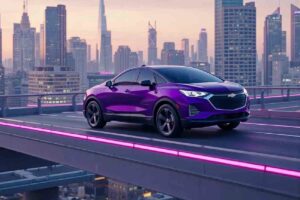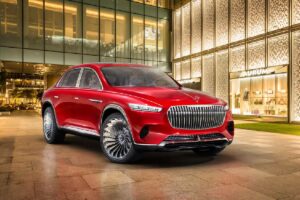
EVs are powered entirely by electricity. They move thanks to one or more electric motors that are powered by rechargeable battery packs. let’s understand the mileage of EVs.
Electric cars offer various benefits over conventional vehicles in terms of mileage:
Energy saving. Over 77% of the electrical energy from the grid is converted to power at the wheels by EVs.
Conventional gasoline cars transfer only around 12%-30% of the energy stored in fuel to wheel power.
EVs produce no tailpipe pollution, while the power plant that generates the electricity may.
Electricity generated by nuclear, hydro, solar, or wind power facilities emits no pollutants into the atmosphere.
Electric motors are quieter, smoother, and faster than internal combustion engines, and they require less maintenance.
EVs are a type of residential energy.
EVs have a lower driving range than most conventional vehicles, however this is increasing.
Most EVs can travel more than 100 miles on a single charge, and depending on the type, some may travel up to 200 or 300 miles.
It might take 3 to 12 hours to fully recharge the battery pack.
A “rapid charge” to 80% capacity can take up to 30 minutes.
This list is limited to new models sold in the United States and is sorted by EPA combined driving range from shortest to longest.
We’ve just listed the most powerful version of each electric car to keep things simple.
We also provided each vehicle’s starting price and EPA MPGe rating, which is the EV equivalent of miles per gallon.
Batteries have gotten more powerful and less costly.
Batteries are the most costly component in the production of an EV, and their cost has dropped substantially over the last decade.
Major companies have made public data that battery costs have plummeted from thousands per (kWh) to hundreds per (kWh).
The size of an EV’s battery isn’t the only factor influencing its mileage.
The distance you can go on a single charge is affected by how fast you drive, and how often you need to accelerate.
EV’s conclusion
Driving range is one of the most important considerations for car buyers contemplating an electric vehicle.
That’s because range anxiety, or the fear that your EV won’t have enough battery charge to finish a journey, is a powerful motivator.
Driving an EV is a fun initiative and car enthusiasts hope for quick adoption.
It’s easy to get caught up in range and how it relates to those long drives.
It’s important to remember that because of how regular our driving patterns are, we don’t actually need that much range.
The majority of drivers follow a routine daily plan that frequently begins at home, involves dropping off children at school, involves driving to work, involves doing errands, and ends at home.
Most of the time, driving won’t even come close to totally draining a battery.


